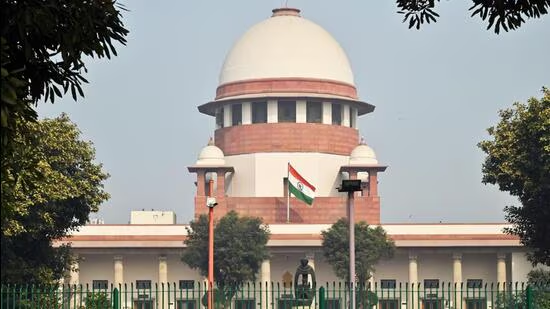
New Delhi: On January 2, 2025, the Supreme Court of India directed that a plea from AIMIM President Asaduddin Owaisi, which seeks the implementation of the Places of Worship Act, 1991, be linked with a set of pending cases. This Act prohibits lawsuits aimed at reclaiming places of worship or altering their status as it existed on August 15, 1947.
The Bench, led by Chief Justice of India Sanjiv Khanna and Justice Sanjay Kumar, ordered that Owaisi’s plea be associated with existing petitions. These petitions include restrictions on registering new cases, issuing final judgments, or conducting surveys related to mosques and shrines.
In an interim order dated December 12, 2024, the Special Bench led by CJI Khanna had mandated that no new suits under the Places of Worship Act could be filed, and that no final or effective orders would be made in ongoing cases until further notice. The Special Bench, which also includes Justices Sanjay Kumar and K.V. Viswanathan, instructed the Union government to submit a response within four weeks regarding the petitions challenging the Act’s validity.
The case is tentatively scheduled for a hearing on February 17. Meanwhile, several applications have been submitted to the Supreme Court seeking the dismissal of petitions against the Places of Worship Act.
The Managing Committee of Varanasi’s Gyanvapi Mosque argued that declaring the 1991 Act unconstitutional would have severe repercussions, undermining the rule of law and communal harmony. They emphasized that a challenge to a legislative act must demonstrate its unconstitutionality based on constitutional principles, rather than seeking retribution for historical grievances.
The committee noted that around 20 suits are pending in various Varanasi courts aimed at negating the protections offered by the 1991 Act, which would affect Muslim access to the mosque. Similarly, the Committee of Management of Mathura’s Shahi Masjid Eidgah stated that the law, enacted for the nation’s progress, has successfully endured for over 33 years.
The All India Muslim Personal Law Board (AIMPLB) criticized local courts for undermining the 1991 Act’s intent by entertaining petitions and issuing orders related to mosques. They pointed out that the Supreme Court’s recent order halting effective decisions and survey orders until the next hearing is a crucial step in maintaining the Act’s integrity.
